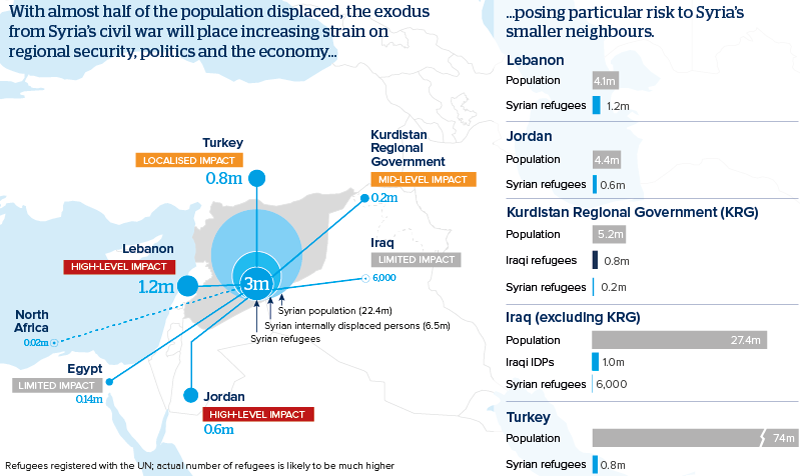Middle East refugees pose long-term stability risk
The exodus from Syria's civil war will place increasing strain on regional security, politics and the economy.

Source: UNHCR, OCHA, World Bank
Outlook
With no end in sight to the conflict, Syria's refugees are likely to remain in neighbouring countries for many years. Lebanon and Jordan host the greatest number -- representing an increase of at least 30% and 14% in their respective population sizes. Their fragile economies and delicate political balances could be easily overwhelmed by the existence of a new, large and impoverished refugee community within their borders.
Refugee communities pose a significant security threat. They provide natural recruiting grounds for extremist groups and, in Lebanon and Turkey's case, logistical rear-guard support for rebels fighting across the border.
Impacts
- Refugee numbers are likely to grow significantly as jihadist forces advance westwards.
- Many of the 6.5 million displaced inside Syria will also seek to cross into neighbouring countries.
- Lebanon and Jordan will require substantial international aid to deal with the social and economic fallout of the new refugees.
- Mass displacement from the Islamic State's advances in Iraq will pose additional strains on the KRG.